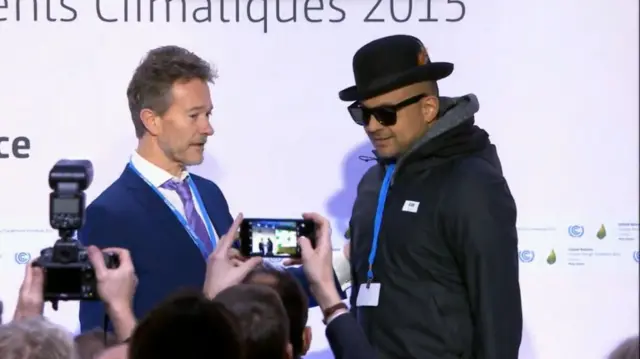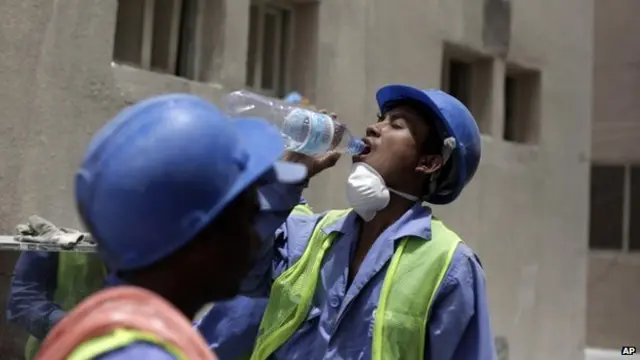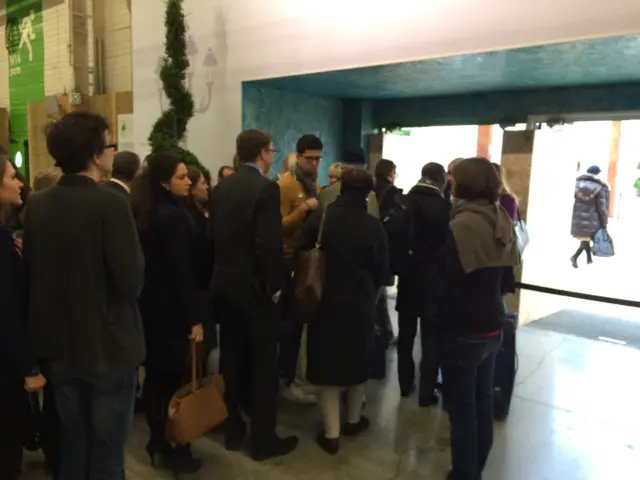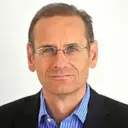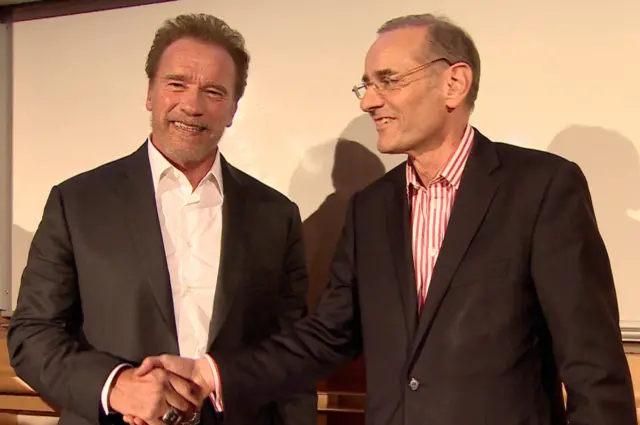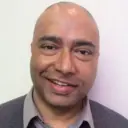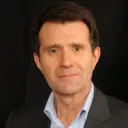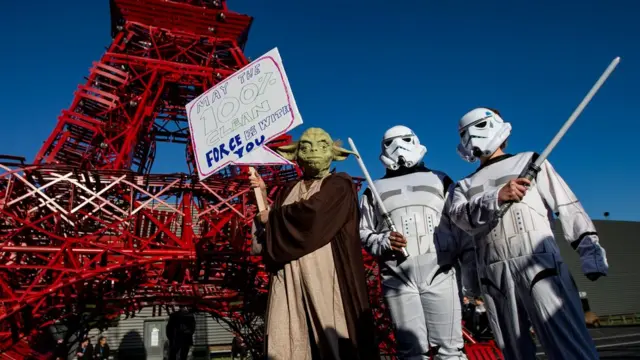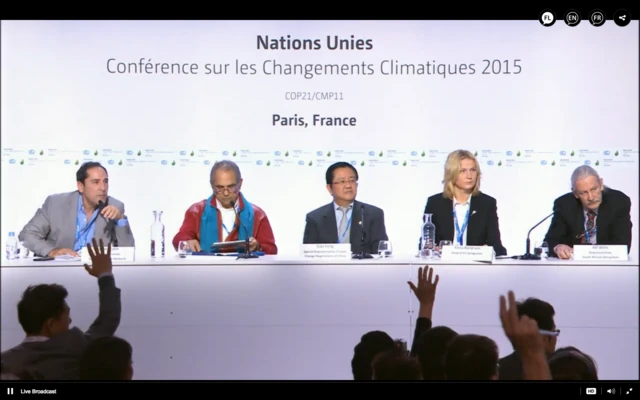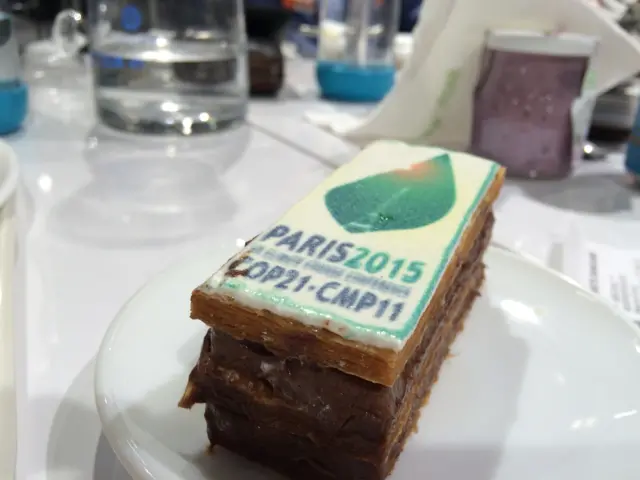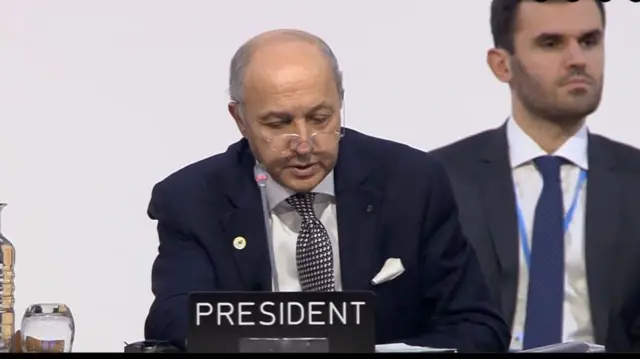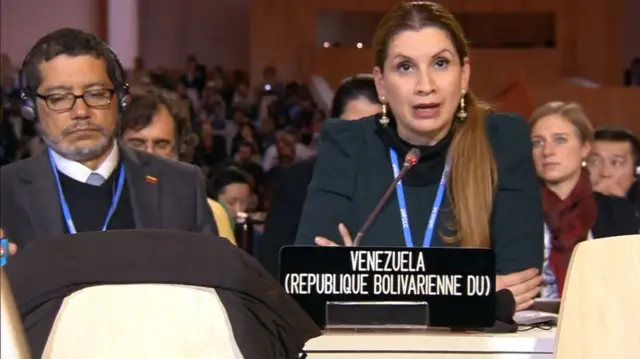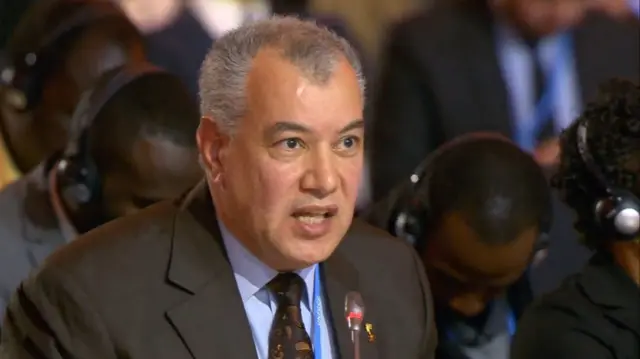Noah's animals in a flood of delegatespublished at 15:40
Colourful plastic animals representing Noah's Ark dot the Paris site of the UN climate summit, COP21 - clustered near several eating outlets and lining the so-called "Champs-Elysee" that runs between the huge halls.
Despite one very rainy day on Tuesday, the only flood this menagerie has had to face is the constant ebb and flow of conference attendees: negotiators, ministers, journalists, protesters, lobbyists and the myriad other people that make up COP21's 40,000-strong population.
A yellow bear is among the plastic greeters lining the "Champs-Elysee"
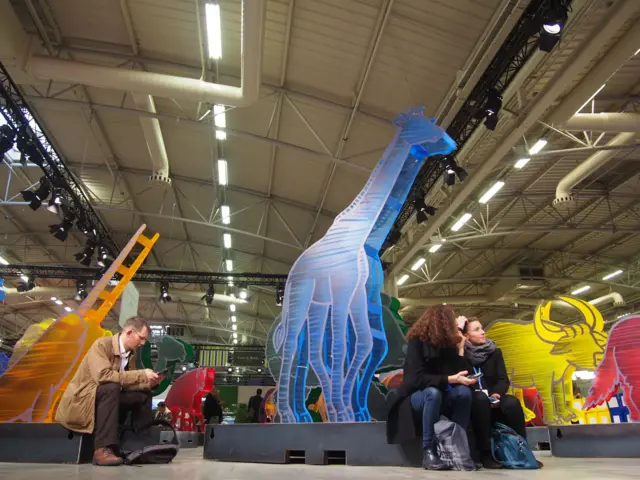
The animals' pedestals make a useful meeting point...
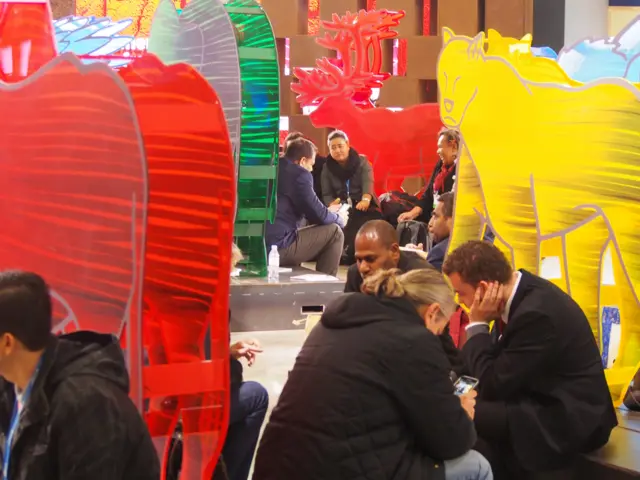
...or a spot to sit for lunch.
